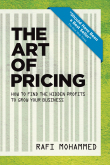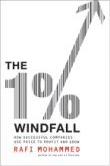Why Baseball Seats Should Be Priced Like Airline Tickets
Reprinted from the Harvard Business Review website.
As organists at stadiums across the country are again playing “Take Me Out to the Ball Game” on Opening Days, another game is quietly being played in box office backrooms. Last year, 17 out of the 30 Major League teams were using some form of dynamic pricing — the concept of raising and lowering prices in accordance with demand — to price ballpark tickets. This year, the practice seems likely to grow.
It’s impossible to set the “right ticket prices” months in advance of an individual ballgame. Of course, some variables allow teams to initially set prices that reflect the unique value of a game including opponent (e.g., higher prices for the ongoing Yankees — Red Sox rivalry), weekday vs. weekend dates, and promotions like Bat Day. But there are other factors which fluctuate until game day that can’t be anticipated, such as the teams’ records, quality of pitchers, and weather. Any changes in these components of value can make a game “hot” or, conversely, a “bust.”
Dynamic pricing makes sense for baseball as it shares key qualities that have enabled other industries (airlines, hotels, and rental cars) to prosper from this strategy: fixed capacity, low variable costs, and a “product” that expires at a certain time. However, to make the most of dynamic pricing and minimize backlash, team owners should keep the following in mind:
Temper the Urge to Jack Up Prices During Times of High Demand. Given the opportunity, I am always happy to recommend raising prices. However baseball has unique constraints that mandate keeping prices in check. First, the sport is viewed and marketed as “America’s pastime,” not “follies for the rich.” As both Apple and Netflix discovered the hard way, a change in pricing strategy can adversely impact an entity’s brand. Sure, it’s tempting for teams to raise prices for popular games, especially when scalpers are charging astronomical sums. But keep in mind that scalpers aren’t carrying the risk of tarnishing a long trusted and egalitarian brand image that is crucial to Major League Baseball’s (MLB) continued success.
Just as important, revenue doesn’t solely come from ticket sales. MLB earns profits from several other avenues including broadcast rights, merchandise, and sponsorships. If the average fan can’t afford to attend a game, managers are right to worry that this might dampen their interest in the sport and negatively impact other non-ticket related profits.
The Real Opportunity Is Filling Seats via Highly Discounted Prices. I am endlessly fascinated by how effective discounts are in quickly selling products. Not long ago, for instance, downtown hotels used to be vacant on Saturday nights. After all, who would want to spend the weekend at a city hotel that caters to business travelers on weekdays? As it turns out, a new segment — leisure travelers — is happy to…for the right price. Within four years of introducing its highly discounted “BounceBack” weekend rates, Saturdays went from the second lowest occupied night to Hilton Hotels’ highest.
Discounts can accomplish the same for sparsely populated stadiums. To be clear, I don’t mean small price cuts: I am talking about big “50% off” price breaks that hotels use to fill their excess capacity. Just like Hilton, the primary goal of these discounts should be to expand their customer base by attracting a new segment of attendees. So while a game may be a “dud” to regular game-goers, there are many other fans of America’s pastime —perhaps more interested in the experience than game intensity — who may attend at a discount. Lower overall prices can also attract regular attendees, who usually sit in the grandstand, simply for the opportunity to enjoy a game from the best seats. In addition to boosting attendance and revenue, activating new customers enhances interest and generates new profits from related income streams.
One hurdle to offering drastic discounts is its potential effect on season ticket holders. It’s important that these valued customers continue buying upfront and don’t hold out for potentially lower prices. The remedy is straightforward: provide automatic refunds to season ticket holders when “like” individual ticket prices are lowered due to weak demand.
MLB’s focus on pricing provides a lesson to all businesses. It’s both challenging to initially set prices and important to realize that the value of a product or service often changes over time. Because of the resulting mismatches in value and price, it makes sense to regularly review prices to ensure you aren’t shorting yourself or missing new sale opportunities.




